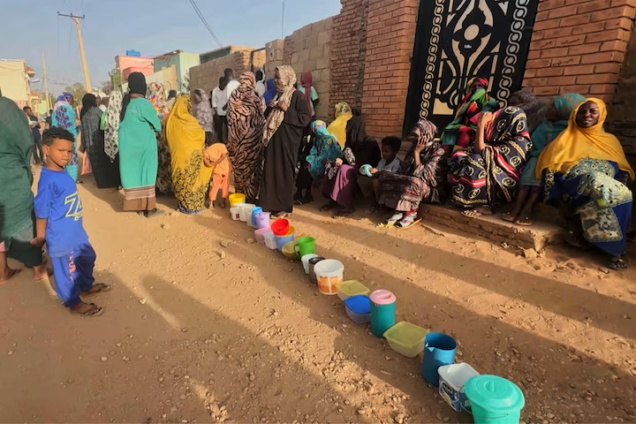Parts of Sudan are in famine, a top U.S. diplomat said on Tuesday, adding that the extent of extreme hunger remained unclear nearly 14 months into a war between the army and the paramilitary Rapid Support Forces (RSF).
"I think we know we are in famine," Tom Perriello, the U.S. special envoy to Sudan, told Reuters in an interview. "I think the question is how much famine, how much of the country, and for how long."
No formal declaration of famine has been made in Sudan.
Famines are determined using a complex set of technical criteria, known as the Integrated Food Security Phase Classification (IPC), an initiative of U.N. agencies, regional bodies and aid groups. They include extreme levels of malnutrition and mortality.
U.N. agencies warned at the end of May that Sudan was at "imminent risk of famine", with about 18 million people acutely hungry, including 3.6 million children who were severely malnourished.
In an assessment in March, the IPC said nearly five million people in Sudan were one step away from famine.
Reuters has reported on how the war has driven some people to eat soil and leaves to survive. The IPC is expected to issue an update on Sudan in the coming weeks.
Perriello said the main obstacle to declaring famine was a lack of data due to the impact of the conflict, adding that Sudan was a case of "man-made" famine and that both warring parties were responsible.
"If you look back over the last year, it's the RSF for burning all the crops and looting all the warehouses," Perriello said. "But it is definitely SAF (the Sudanese Armed Forces) right now playing games with border access, cross-line access, and allowing their people to die."
Both the army and the RSF have denied impeding humanitarian aid.
The conflict broke out in the capital Khartoum in April 2023 and quickly spread, reigniting ethnic bloodshed in the western Darfur region and forcing millions to flee in the world's largest displacement crisis.
Diplomatic efforts to revive ceasefire talks have so far been unsuccessful, with the army rejecting negotiations.
There had been a "substantial elevation of urgency" internationally about the need to find a resolution to the conflict in Sudan, Perriello said.
"But we haven't yet reached the inflection point where it's enough to get what we need, which is an end to the war."
Latest Stories
-
‘Golden Boy’ Abdul Karim Razak honored at WAFU-B general assembly
4 mins -
Buipewura Jinapor secures Vice Presidential position in National House of Chiefs with record votes
13 mins -
2024 election: I want results to come out like ‘milk and honey’ – Toobu
14 mins -
Ghana’s Henry Bukari hands over chairmanship of ECOWAS Brown Card Council of Bureaux
20 mins -
Residents of Dome-Kwabenya on edge ahead of December elections
51 mins -
Moffy drops new single ‘Wo’, blending culture and modernity
1 hour -
Don’t bring soldiers to polling stations – Martin Kpebu
1 hour -
Ogyeahohuo Yaw Gyebi II retained as President of National House of Chiefs
2 hours -
Embrace ICT to fit in digital world – Ho NYA boss to youth
2 hours -
We don’t want armed soldiers at polling stations – Tanko-Computer
2 hours -
Drama as police corner armed robbers inside locked forex bureau at Lapaz
2 hours -
NEIP CEO to Kwaku Manu: You can support any political party, but stop misbehaving in NPP colours
3 hours -
30% quota for less privileged shows Free SHS is inclusive – Ofosu Nkansah
3 hours -
Nigerian-born conquers childhood hearing loss to become KNUST’s overall best graduating student
3 hours -
ECOWAS Court orders compensation for violations against New Force’s Shalimar Abbiusi
3 hours

